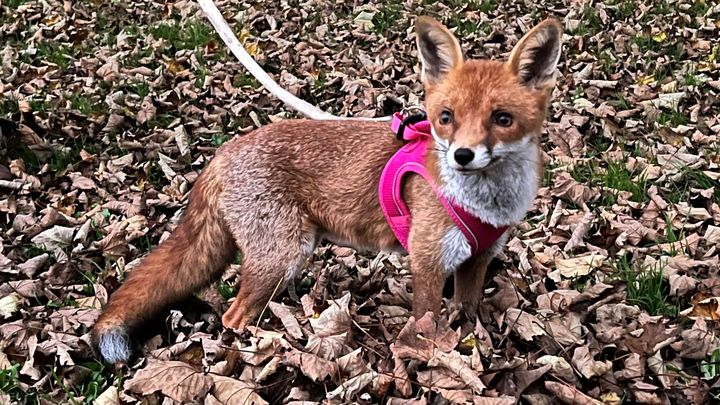
Update: Hazel’s lifechanging operation
Important update!
Hazel has come home today ❤️
Lorraine will be monitoring her closely at the centre but things are looking good. No seizures since Friday. She’s a little off balance but then she’s been confined for a week. There has been an improvement in her walking even in the couple of hours that she’s been home though And she has a carrier bag of various meds!
We haven’t had the final bill yet but think it will be between £13-£15k so your support is very much appreciated. ❤️❤️
UPDATE:
Hazel has had her operation. It went well but took a little longer than expected. This is the first time ever that this operation has been carried out on a fox, so there is nothing to compare it to. The vets at North Downs have been amazing and are doing everything they can whilst Hazel is in their care.
Unfortunately she had a bad night with a couple of seizures. This could be due to post-op brain swelling but she is being monitored very closely. We don’t yet know when she will be discharged.
Your donations are massively appreciated and will help towards the increasing costs. Thank you all so much.

I’m raising money in aid of The Kent Wildlife Rescue Service and every donation will help. Thank you in advance for your contribution to this cause that means so much to me.
Hazel has Hydrocephalus. This means that the fluid around her brain does not drain properly, causing increased pressure in her head which then causes seizures.
She can have the same operation that is carried out on humans - a shunt in her head & internal tubing to drain the fluid into her abdomen - but obviously it is not very common for foxes. The wonderful North Downs Specialist Referrals in Surrey have agreed to perform the operation and she has had her initial assessment and MRI so it is all systems go.
Unfortunately the rarity of the procedure, and the fact that the shunt has to be imported from Germany means that this is a very expensive operation, expected to be in excess of £10,000. This is where the fundraising comes in.
Why are we doing this for a fox?
Hazel was brought into KWRS in April 2023, at just a few weeks old, having been found laying in the road next to her dead mother. It was immediately apparent that Hazel was different to the other cubs. Her forehead was rather large and her eyes were not quite in the right position. Despite this, she continued to grow and thrive, just with a big head.
A CT scan confirmed the diagnosis of Hydrocephalus. Should she survive, Hazel would never be able to live in the wild. Hazel didn't care, she was happy at the centre, spending more time out of a pen than in. Meeting all the volunteers, visitors and all breeds of patients. Hazel's condition means that she treats all animals and people the same. She has no concept of who she should fear or who she should consider prey.
Sadly in June 2023, she had her first seizure. She has been on anti-seizure meds ever since. They do help, but she still has seizures. Each one could be causing more brain damage or could even be fatal. The best outcome of the operation would be no more seizures, but even a reduction would be amazing for Hazel.

She has a gentle but mischievous character and has gradually taken over the centre. She no longer spends any time in a cage or a pen. She sleeps wherever she likes, which is quite often in doorways or anywhere that is underfoot. Not that she spends all her time sleeping. She charges around like a puppy with the zoomies, loves a black bin bag (empty or full) especially if she gets to drag it all the way to the garden and she protects the other animals from a suspicious pair of slippers lurking by the sofa.


Hazel is quite an accomplished fox too. Due to her lovely nature she has attended various fundraising events with the volunteers. She’s been to numerous fairs and fetes, care homes, a church service, Christmas Light switch ons, has been cuddled by a policeman and even been interviewed on BBC Radio Kent. She’s helping to spread the word that foxes are beautiful creatures. And they love ice cream.

More information about The Kent Wildlife Rescue Service: KWRS is a charity which rescues, treats and rehabilitate all species of wildlife that are found injured, sick or orphaned and return them to the wild, wherever possible. KWRS also advises and educates members of the public, schools, colleges and groups on wildlife, and promotes best practices in countryside living that helps communities, environment and its fauna and flora. KWRS also helps veterinary professionals who take in wildlife.

Organizer
Gill Bishop
Organizer
England
The Kent Wildlife Rescue Service
Beneficiary